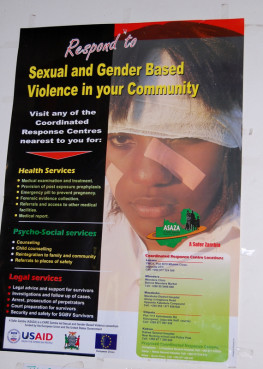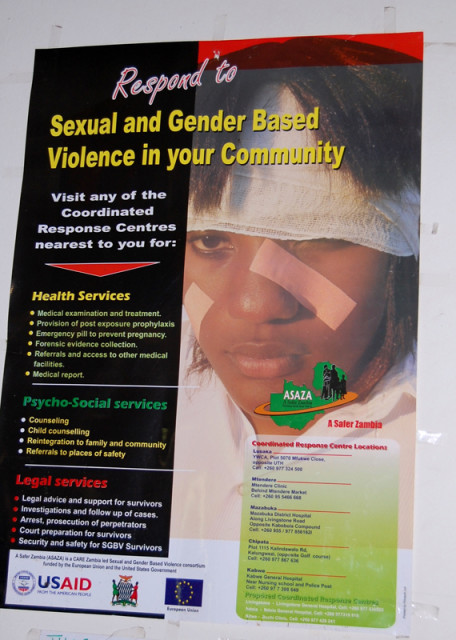WASHINGTON (RNS) For the last decade, progressive evangelicals have rallied around social justice issues like poverty, racism and human trafficking. This week a gathering of Christian leaders brought another cause to the top of the agenda: domestic violence.
Instead of viewing it as a personal or family concern, the Sojourners Summit, which concludes Saturday (June 20), zeroed in on domestic violence as a human rights issue, hoping to shine the spotlight on a problem little talked about in many Christian circles.
A study commissioned last year by Sojourners and IMA World Health, an international, nonprofit health care service, found that most Protestant pastors greatly underestimate sexual and other violence against women. Worse, conservative pastors who teach “male headship” and submission of wives to their husbands may do more harm than good when counseling couples or individuals.
“Experts identify a link between masculine ideals of power and control and violence against women and girls,” said Carolyn Custis James, an evangelical theologian and author of “Malestrom: Manhood Swept into the Currents of a Changing World.”
James, who spoke at the summit, added: “A theology based upon patriarchal notions that empowers men over women — who are expected to submit — establishes a relational system that can easily lead to violence and others forms of abuse.”
Taking the issue of domestic violence out of the personal realm and making it a justice issue is necessary, the study concludes, because it requires the full force of the legal system as well as social institutions, including faith communities. Without this attention to the issue, victims will continue to feel isolated and lack support systems.
Eight in 10 pastors recognize they need to know more about protecting victims of sexual and domestic violence and wish they had more training and resources. Most had received no training in seminary or other pastoral preparation.
“It’s time for our Christian leaders to stand up and say that women, made in the very image of God, deserve better,” said Jim Wallis, Sojourners’ president and founder. “And it’s time for us in the faith community to acknowledge our complicity in a culture that too often not only remains silent, but also can propagate a false theology of power and dominance.”
A majority of pastors surveyed say they have responded to sexual or domestic violence by providing marriage counseling, a potentially dangerous or even lethal response for the victim, who is then not separated from the perpetrator.

A public poster brings attention to gender based violence in Zambia. Religion News Service photo by Dale Hanson Burke
Ironically, gender-based violence is often addressed in the overseas programs of faith-based NGOs like IMA World Health, World Vision, and others. An organization called “We Will Speak Out” is a global coalition of faith-based groups working to end gender-based violence around the world. IMA World Health now serves as the U.S. secretariat for the group.
While visiting the work of IMA World Health to prevent gender-based violence in the Democratic Republic of the Congo, board member Rev. Amy Gopp asked what the organization was doing in the U.S. to combat the same problem. Her concerns led the organization to initiate the study and begin its first domestic program.
“Let us not fool ourselves into thinking that sexual and gender-based violence happens only, or even primarily, in the developing world or transitional societies,” writes Gopp. “More than one in three women in the United States have reportedly experienced sexual assault, physical violence or stalking by an intimate partner during their lifetime. That’s too many.”
By raising the visibility of gender-based violence in the U.S. and addressing it as an issue of social justice, Christian leaders hope to bring help to those women who have too often felt isolated or abandoned by their own faith communities.
(Dale Hanson Bourke is a contributing editor for RNS and editor of PracticingFaith.com.)
YS/AMB END BOURKE





